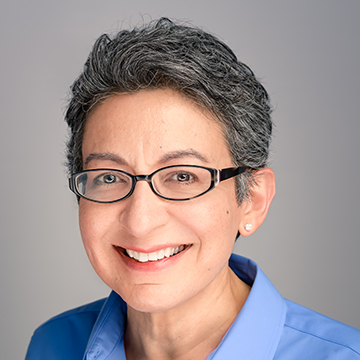Career-Development Program Receives $5.4 Million
The Northwestern University Clinical and Translational Sciences (NUCATS) Institute has received a five-year, $5.4 million K12 Mentored Research Career Development Program Award from the National Institutes of Health (NIH).
“Our goal is to train clinical and translational scientists to be leaders of interdisciplinary teams, leaders who can tackle translational roadblocks, and who employ implementation science principles and partner with affected groups and end-users,” says K12 MPI Leena Sharma, MD, the Chang-Lee Professor of Preventive Rheumatology.
The program includes robust mentoring teams to assess the educational needs of the individual scholars and to provide them with personalized career development opportunities. In addition, it provides career development resources (formal coursework, peer mentoring, and career guidance) to scholars across disparate areas of expertise.

Our goal is to train clinical and translational scientists to be leaders of interdisciplinary teams, leaders who can tackle translational roadblocks, and who employ implementation science principles and partner with affected groups.”
“Following the two-year program, each K12 Scholar will be well positioned with the knowledge, skills, and ability to advance diagnostics, therapeutics, clinical interventions, and behavioral modifications that improve health,” says K12 MPI Betina Yanez, PhD, associate professor of Medical Social Sciences in the Division of Intervention Science.
The NUCATS Institute’s KL2 Mentored Career Development Program has been continuously funded for 17 years, during which time it has supported 41 Scholars. Many former Scholars have been awarded NIH R01 and K grants and have transitioned to leadership positions within Northwestern University Feinberg School of Medicine and at other institutions.
November 5 Information Session
The newly funded K12 grows out of the successful KL2 program. NUCATS is among a select group of CTSA hubs that were successful with this new mechanism on its first attempt. The K12 places new emphasis on translational science (and not only translational research) training, requiring that programming foster the development of the characteristics of a translational scientist, i.e., to be a domain expert, boundary crosser, team player, process innovator, skilled communicator, systems thinker, and rigorous researcher.
The re-imagined early-career development program at Feinberg will leverage exceptional Northwestern, NUCATS, and Institute for Public Health and Medicine strengths in areas directly relevant to the newly conceptualized NCATS mission.”

“This approach by NCATS reflects a deeper understanding of the need to nurture investigators who are dedicated to overcoming bottlenecks to translation and whose research findings are more implementable in community settings,” says Sharma. “It is well known that it takes many years for a discovery to have an impact in daily life. This new approach brings that challenge into training, requiring us to think about how to train scientists who consider implementability from ideation and early translational stages.”
Three Northwestern faculty members have been named as part of the first K12 cohort at NUCATS, joining three KL2 scholars.
“Being named a K12 Scholar is a tremendous honor and a pivotal moment in my career,” says Burcu Aydemir, PhD, research assistant professor of Medicine in the Division of Rheumatology. “This award provides me with invaluable resources and support that will significantly enhance my research capabilities and professional growth. The K12 program offers a structured framework for growth, enabling me to focus more intensively on my research goals. I anticipate that this support will also help facilitate new collaborations.”
The Institute’s K12 Physician Scientist Award is expected to fund 18 Scholars over five years.
“The re-imagined early-career development program at Feinberg will leverage exceptional Northwestern, NUCATS, and Institute for Public Health and Medicine strengths in areas directly relevant to the newly conceptualized NCATS mission — particularly in implementation science and in engagement of community partners and affected/interested groups,” says Yanez. “There will also be new networking opportunities for early-stage investigators who are seeking to connect with other K Scholars and K applicants.”
Applications to be a part of the next cohort of K12 Scholars are due March 3, 2025. NUCATS and the K12 program are funded by the NCATS (Grant Number K12TR005104), with generous support from Northwestern University Feinberg School of Medicine.
Written by Roger Anderson




